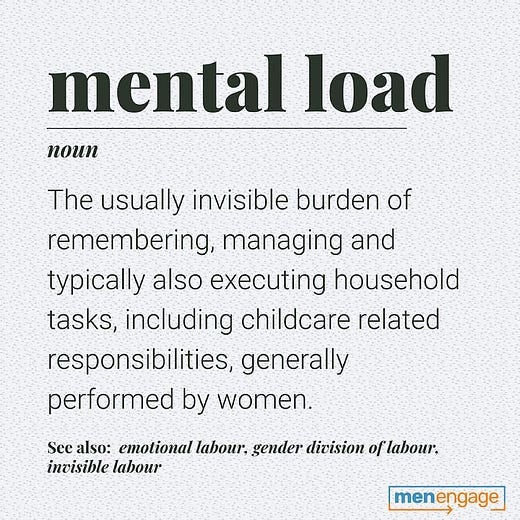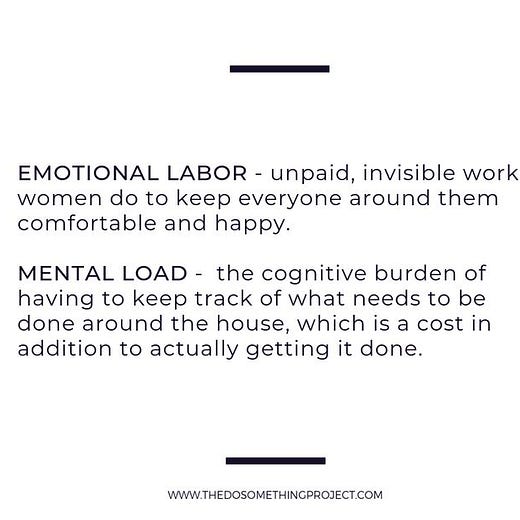Women's History Month Ends Tomorrow

Women's History Month is an annual celebration in the United States that takes place every March. The month-long observance is dedicated to highlighting the historic contributions and achievements of women and girls, including femmes and trans and nonbinary women and girls.
Throughout the month of March, events are held across the country to celebrate the achievements of women and girls in fields including science, technology, engineering, arts, and politics.
It serves as an opportunity to reflect on the progress that has been made in the fight for equity in the US and around the world…as well as the long way left to go.
Because, in the last several years, the gender pay gap in the US actually widened.
Additionally, the COVID-19 pandemic exacerbated the pre-existing issue of an unequal distribution of unpaid household labor.
With the closure of schools and daycare facilities, parents had to allocate an extra twenty-four hours per week to household chores, childcare, and education. Much of that unpaid labor was done by women.
In households with two working parents of different sexes, women were predominantly responsible for the additional childcare duties brought on by the covid lockdowns and the shifting patten we’ve been in since. During this period, one-third of working mothers, in contrast to only one-tenth of working fathers, reported being the sole provider of childcare for their children.
As a result, 64% of working mothers reported reducing their work hours at some point during the pandemic, compared to 36% of working fathers.
Gendered division of emotional and cognitive labor in relationships has also long been an issue. Prior to the pandemic, studies already indicated that women in dual-income different-sex households tend to perform more emotional work than men, with differing conceptions of emotional work based on gender contributing to this disparity.
Mothers, for example, tend to view emotional labor as a distinct type of work for which they will be held accountable as part of their role in the household. Conversely, fathers tend to see emotional work as simply part of their interpersonal relationships with their family, rather than an additional task.
The gendered culture of emotion in the United States contributes significantly to the unequal allocation of labor related to parenting and running a household, particularly in households with more traditional gender roles.
…and non-white woman have additional barricades in front of their health and success.
Studies have shown that black women are systematically discriminated against within our healthcare system. They are more likely to experience negative health outcomes and face barriers to receiving appropriate and timely medical care.
Black women are more likely to die from pregnancy-related complications than white women, even when controlling for factors such as income and education. Additionally, black women are less likely to receive appropriate breast cancer screenings and have lower survival rates from the disease. They are also less likely to receive treatment for mental health disorders, such as depression, compared to their white counterparts.
Studies have also found that healthcare providers may hold unconscious biases against black women, leading to differences in the quality of care they receive.
Indigenous women have similar healthcare issues, but they also face extremely high rates of bodily and sexual violence.
Violence against Indigenous women in the United States is an epidemic. According to the Indian Law Resource Center, more than 80% of American Indian and Alaska Native women have experienced violence, and over 50% have experienced sexual violence.
In Alaska, Native women suffer from the highest rate of forcible sexual assault and report rates of domestic violence up to ten times higher than the national average.
And, of course, legislation and violence against the LGBTQ+ community continues across Alaska and the rest of the country.
Women’s History Month is a celebration and it’s important for many reasons, including:
Representation: Women and girls have played significant roles in shaping history, but their contributions are often overlooked or ignored. Recognizing their accomplishments and acknowledging their contributions helps to give them the representation they deserve.
Inspiration: Learning about the accomplishments of women and girls can inspire future generations to pursue their goals and dreams, regardless of gender or societal expectations.
Understanding: Understanding the experiences of women and girls can help to provide a more complete understanding of historical events and societal norms, as well as the impact of gender on those events and norms.
Equity: Recognizing the achievements and contributions of women and girls helps to promote gender equity and challenge the stereotypes and biases that have historically limited them.
But we should also look forward
Though the month is over, there’s a lot more work to do.
We’ve got a long way to go.
As March of 2023 wraps up, I wanted to thank the many women in my own life: from a family filled with matriarchs, to my mother and my partner, to friends, coworkers, and fellow community members. Thank you for your strength, and your leadership.
I hope you get time to rest.






